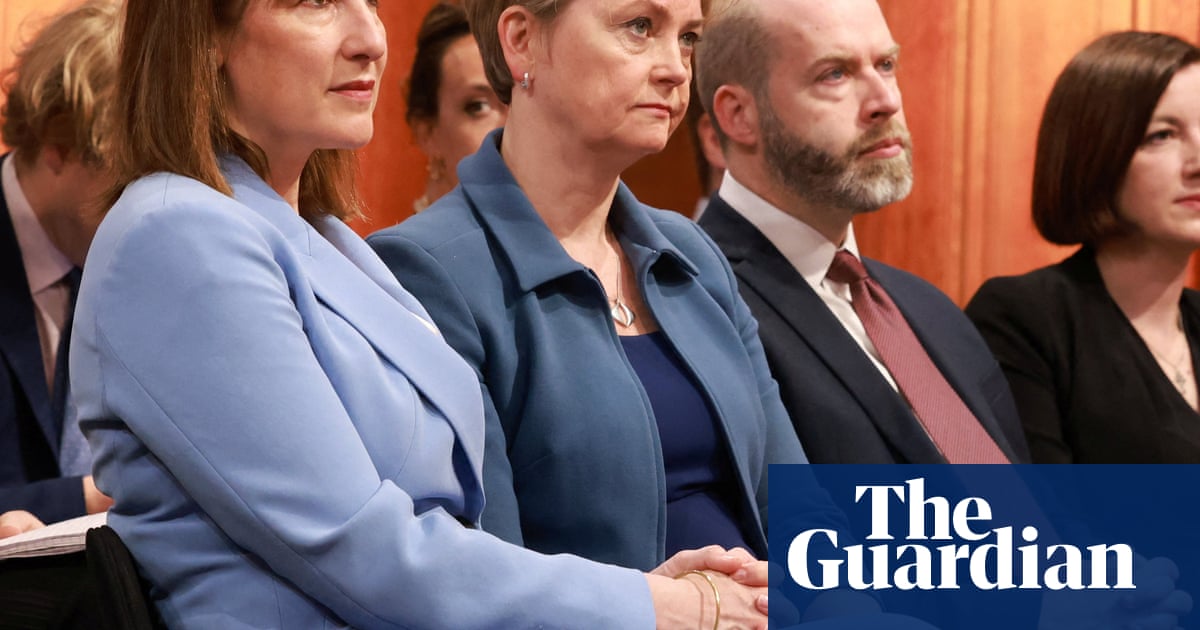The home secretary,Yvette Cooper, has said the prime minister’s words were “completely different” to those used by Enoch Powell in his infamous rivers of blood speech, amid criticism within the party of the rhetoric used to launch the government’s immigration crackdown.
A number of MPs criticised Keir Starmer when he said the UK riskedbecoming “an island of strangers”if steps were not taken to address integration. Speaking on Tuesday, Cooper said that Starmer had also praised the contribution of migrants.
“I don’t think it’s right to make those comparisons, I think it’s completely different,” she told BBC Radio 4’s Today programme. “The prime minister said yesterday, I think almost in the same breath, he talked about the diverse country that we are and that being part of our strength.
“Everybody always gets caught up in focusing on different phrases … if you look at what the prime minister said yesterday, he talked about people who came after the war to work in the UK, to build some of our services and how important that was. But he also talked about how immigration has to be properly controlled and managed, and it hasn’t been. I actually think it’s OK to have both those views.”
The white paper launched on Monday includes measures toban new recruitment from abroadfor care roles, as part of a wider effort to reduce legal migration and prioritise UK-based workers.
It also plans to raise foreign workers’ skills requirements to degree level, raise the standardsof English languagerequired for all types of visa including dependents, and increase the time it takes to gain citizenship from five years to as many as 10.
Migrants who demonstrate a “contribution” to the economy and society through their tax returns, who work for the NHS and other public services, who have engineering jobs or who do outstanding voluntary service will be entitled to fast-track their permanent residency.
The rhetoric used by Starmer was likened by some critics to the language of Powell in 1968, and the prime minister was accused of pandering to the populist right by insisting he intended to “take back control of our borders” and end a “squalid chapter” of rising inward migration.
Some MPs claimed that his words had echoed Powell’snotorious “rivers of blood” speech, which imagined a future multicultural Britain where the white population “found themselves made strangers in their own country”. Starmer told the Guardian: “Migrants make a massive contribution to the UK, and I would never denigrate that.”
Several Labour MPs questioned whether Starmer’s policies were fuelling racism. Sarah Owen, the Labour chair of the women and equalities committee, who is of Malaysian-Chinese heritage, said: “Chasing the tail of the right risks taking our country down a very dark path.
“The best way to avoid becoming an ‘island of strangers’ is investing in communities to thrive – not pitting people against each other.”
Cooper also defended the decision to end the social care visa – which has led to warnings from the professionabout severe staff shortages. She said the introduction of the visa under the Conservatives had led to “jobs that often either didn’t exist or the standard of those jobs was really dodgy, that didn’t meet proper standards”.
She said 40,000 care workers who had arrived on visas had ended up being displaced when companies were struck off. “Our argument is that care companies should be recruiting from those pools of displaced workers. They can also extend existing visas.”
On Tuesday, one of the leading MPs in Labour’s “red wall” group, Jake Richards, said the prime minister was right to warn about issues of integration. “The prime minister is absolutely right to warn of the risk of becoming an ‘island of strangers’,” the MP for Rother Valley tweeted. “Millions of people across the country have similar concerns. This theme must be central to missions across immigration, employment, work and tackling neighbourhood deprivation etc.”
